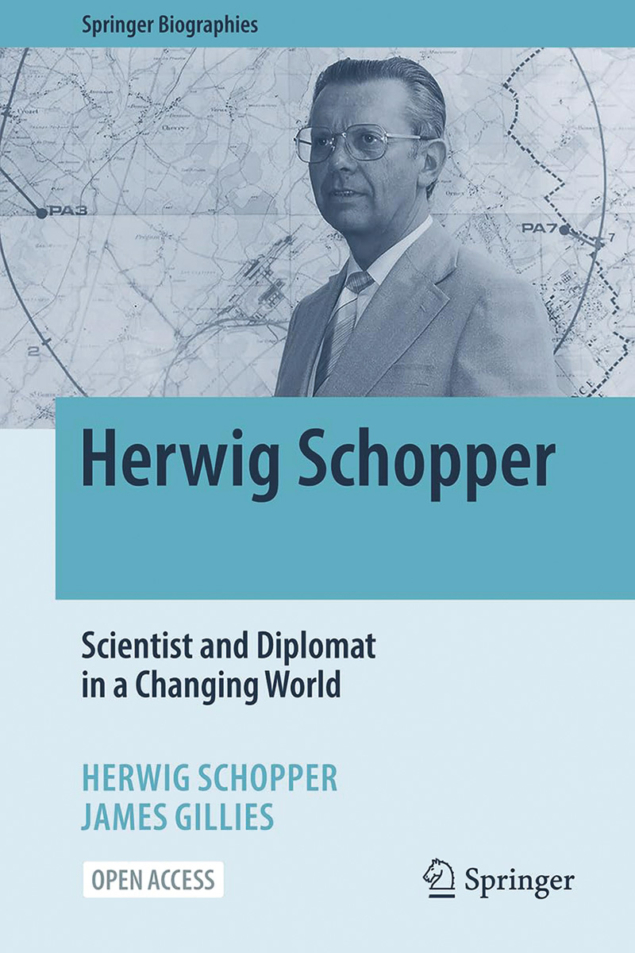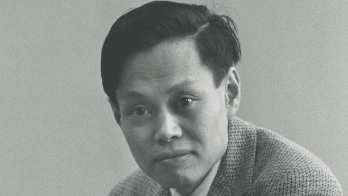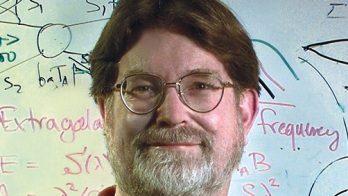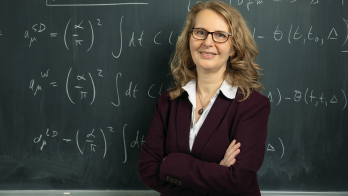Herwig Schopper: Scientist and Diplomat in a Changing World, by Herwig Schopper and James Gillies, Springer Biographies

It is rare and inspiring to be able to read the memoirs of a person who has celebrated their 100th birthday and yet is still exceptionally inquisitive and reflective. Herwig Schopper, director-general of CERN from 1981 to 1988, is one such person. In Scientist and Diplomat in a Changing World, he takes stock of his personal life, the development of physics, the political challenges he has faced, and the human interactions that knit each of these subjects together.
Schopper told the story of his life to co-author James Gillies, a particle physicist and former head of communications at CERN. Their interviews shed a brilliant light on his life. Starting work as a physicist in the field of optics, he moved first to study beta decays and parity violation, and then to nuclear and particle physics, accelerator physics and detector development more generally. Initial chapters cover his early years in what is today the Czech Republic, the dark years of war, and his studies in Hamburg from 1945 to 1954.
But though he loved to work hands on, Schopper was soon asked to found and direct institutes. His impact on nuclear and particle physics in Germany becomes eminently clear when he describes his career at the universities of Erlangen, Mainz, Karlsruhe and Hamburg. The book therefore next turns to time spent as a university professor establishing and directing institutes from 1954 to 1973, including productive sabbaticals in Stockholm, Cambridge and Cornell, and his journey to DESY via CERN between 1973 and 1980. It then explores his time as director-general of CERN from 1981 to 1988, his transition from science to diplomacy, his travels east and his impact on LEP and the LHC. These chapters are captivating, as they describe not only the life story of a remarkably active and productive scientist, but also the historical, scientific and political context in which the work was done.
Many people are happy to take life a little easier when they retire. Not so Herwig Schopper. For him, science is centre stage, and given his vast knowledge in science and science policy, his advice and help are still in high demand. A chapter on science for peace illustrates the rocky path he and dedicated colleagues took to create a science project in the Middle East, SESAME, with the goal to bring scientists from hostile countries to work together on excellent scientific projects.
While the main part of this very readable text describes the life and work of Schopper in the words of his co-author Gillies, each chapter ends with a section in Schopper’s own words in which he shares some very personal memories with the reader, speaking about his family and friends, and his deep love for music. The book also ends with an epilogue and some reflections by the man himself. Building on 100 years of experience, these words provide much food for thought.
Many of Herwig Schopper’s colleagues and friends have encouraged him to write about his life, as he has seen and done so many things. The result of those requests, this biography is a captivating documentation of an exemplary life in particle physics. But more than the story of a fulfilled life, this biography is a textbook about how scientific progress depends on individuals, scientific excellence, inspiration, perseverance and the fortune needed to bring it all off, as the French say.








